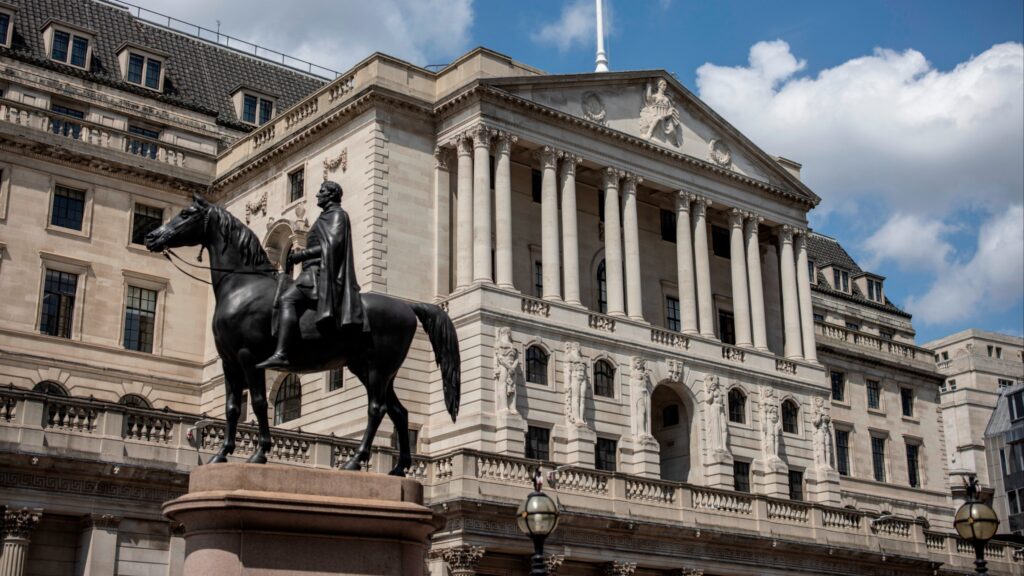UK INTEREST RATES RAISED TO 5%
The Bank of England’s Monetary Policy Committee (MPC) has decided to increase the Bank Rate by a half point, from 4.5% to 5%
- This marks the 13th consecutive interest rate hike in the UK
- Inflation remains at 8.7% – higher than expected
- For mortgage holders, this news comes as another blow – this brings borrowing costs to highest level since April 2008 as Bank intensifies efforts to control inflation
- Savers should benefit

Tackling high inflation
The Bank of England has implemented a significant measure by raising the interest rates by half a percentage point to 5%. This action reflects their intensified commitment to combat persistently high inflation and further burdens households grappling with escalating mortgage expenses.
The decision made by the Bank’s monetary policy committee (MPC) marks the 13th consecutive rate hike, pushing the rates to their highest level since 2008. Before the announcement, financial markets were divided on whether the Bank would opt for a half-point increase or a smaller quarter-point raise, demonstrating uncertainty surrounding the outcome.
Prime Minister, Rishi Sunak, welcomes the BoE’s decision and cautioned Conservative MPs that the implementation of tax cuts would need to be postponed. He emphasised his commitment to maintaining a strong hold on fiscal policy in order to manage the inflation rate, which remained at 8.7 percent in May.
Borrowing rates
Following the release of Wednesday’s data, which indicated that inflation remained steady at 8.7% in May, the recent increase in borrowing expenses was anticipated as expectations grew that the central bank would be compelled to take action. Inflation was projected to decline to 8.4%, although this level would still significantly exceed the Bank’s target of 2%.
Saving rates
Good news for saving rates. Data from Moneyfacts shows that average savings rates have experienced an upward trend.
- The one-year fixed savings rate has increased to 4.49% from a rate of 4.47%.
- Easy access savings now offer a rate of 2.34%, up from 2.33%.
- For a one-year fixed cash ISA, the rate has risen to 4.21% compared to the previous rate of 4.2%.
- The easy access ISA rate has also seen an increase to 2.46% from 2.45%
What does this mean
 Partner, Kareem Rathore, gives his opinion on the impact of UK interest rates increasing: “With the Monetary Policy Committee’s (MPC) decision to increase interest rates, the impact will be felt in several different ways. Here are some of the potential impacts:
Partner, Kareem Rathore, gives his opinion on the impact of UK interest rates increasing: “With the Monetary Policy Committee’s (MPC) decision to increase interest rates, the impact will be felt in several different ways. Here are some of the potential impacts:
Higher borrowing costs
One of the most immediate impacts of an interest rate increase is that it becomes more expensive to borrow money. This can affect individuals and businesses alike. For example, if you have a mortgage, your monthly repayments will likely increase if interest rates increase. Similarly, businesses that rely on loans to fund their operations may find that their borrowing costs increase, which can put pressure on their cash flow.
Reduces consumer spending
With borrowing costs increasing, this will have a knock-on effect on consumer spending. People with less disposable income because of higher mortgage or loan repayments will be less likely to spend money on non-essential items. This can have a negative impact on businesses that rely on consumer spending to drive sales.
Lower inflation
One of the main reasons that central banks increase interest rates is to control inflation. Higher interest rates can make borrowing more expensive, reducing the amount of money people and businesses are willing to spend. This can help slow down inflation, which is the rate at which prices increase.
Reduces economic growth
With borrowing increasing and consumer spending slowing down, this will have a negative impact on economic growth. Businesses may find it harder to access funding and may be less likely to invest in new projects or expand their operations. This can lead to a slowdown in economic activity, which can have a knock-on effect on employment levels and overall prosperity.
OVERALL
Raising interest rates will have wide-reaching impacts on the economy and financial markets. Investors need to remember that if the target inflation rate is not reached, banks may continue to raise rates. Thus investors need to understand how changes in interest rates may impact their investments and adjust their strategies accordingly.”
Get in touch for more information or to speak with a qualified financial adviser.
About Author
How can we help you?
If you would like to speak to one of our advisers, please get in touch today.



